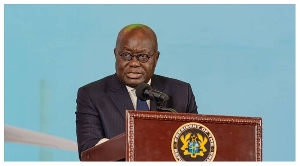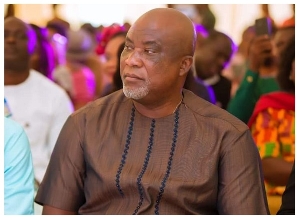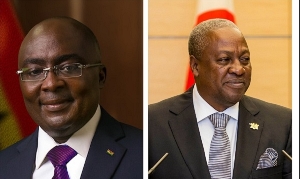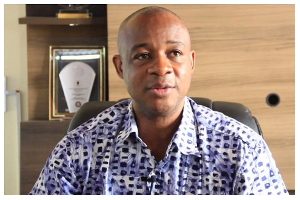 Elsie Addo Awadzi, Second Deputy Governor of the Bank of Ghana
Elsie Addo Awadzi, Second Deputy Governor of the Bank of Ghana
Despite progress in expanding access to financial services, a significant portion of the population in Africa remains excluded or underserved, according to Elsie Addo Awadzi, the Second Deputy Governor of the Bank of Ghana.
Speaking at the 3i Africa Summit in Accra, Ms. Awadzi highlighted data from the World Bank’s 2021 Global Findex report, which showed that while 76 percent of the global adult population had access to a bank account or mobile money in 2021, up from 51 percent in 2011, around 1.4 billion adults worldwide were still unbanked.
“The excluded groups largely comprise unemployed persons, low-income earners, rural dwellers, women, youth, persons with disabilities, and those displaced by natural disasters, climate change, war, and conflict,” Ms. Awadzi stated.
She expressed particular concern over the persistent gender gap in access to finance, noting that in sub-Saharan Africa, the gap increased from 7 percentage points in 2011 to 12 percent in 2021, bucking the global trend of a narrowing gap.
“More women were less likely than men to successfully raise emergency money when in a crisis, and they tended to rely on friends and family, which was not always reliable, particularly during crises,” Ms. Awadzi said.
While acknowledging the positive impact of mobile money in extending financial access to underserved groups, Ms. Awadzi highlighted the need to move beyond using mobile money solely as a payment instrument.
“A lot of the access we’re seeing through mobile money is sometimes short-lived, as people often cash out their mobile money immediately after receiving payments or remittances,” she explained.
Ms. Awadzi also emphasized the importance of mainstreaming financial inclusion into policy, regulation, and business models, rather than treating it as a fringe issue.
“We need to consistently make sure that this is mainstreamed into policy and regulation and in business models of financial services providers and payment services providers as well,” she urged.
Addressing the audience, which included policymakers, regulators, and industry stakeholders, Ms. Awadzi stressed the broader economic implications of financial exclusion, including hindering the effectiveness of monetary policy, limiting government revenue, and leaving certain economic actors vulnerable to economic shocks.
“Exclusion, in the long run, does not augur well for the long-term viability and resilience of financial institutions,” she cautioned, adding that financial institutions should view the unserved and underserved segments as potential future clients to be nurtured.
To address these challenges, Ms. Awadzi called for coordinated efforts to steer innovation and investment towards promoting sustainable financial inclusion, emphasizing the need for clear and consistent policies, effective regulation, and investments in critical infrastructure such as digital IDs, interoperable payment systems, and credit reporting mechanisms.
“It’s important that we balance the policy objectives of inclusion, promoting innovation to promote inclusion, but at the same time, making sure that the financial systems are stable, have integrity, and provide real access at transparent pricing for the ordinary person and the underserved and unserved,” she said.
Ms. Awadzi also highlighted the importance of measuring the real impact of financial inclusion initiatives, beyond just the number of accounts opened, to ensure that the underserved and unserved are genuinely benefiting and able to unleash their full economic potential.
- Ghana to roll out 5G network services within six months – Communications Minister
- Manasseh Azure questions why government awarded 5G contract to one-week-old firm
- The remarkable story of the Ghanaian scholar who bagged four degrees in four years
- Prof. Joseph Yaw Yeboah: The Ghanaian engineer who bagged 4 degrees in 4 years from MIT in 1975
- Fintech transactions surge in Q1 2024 - BoG report
- Read all related articles












